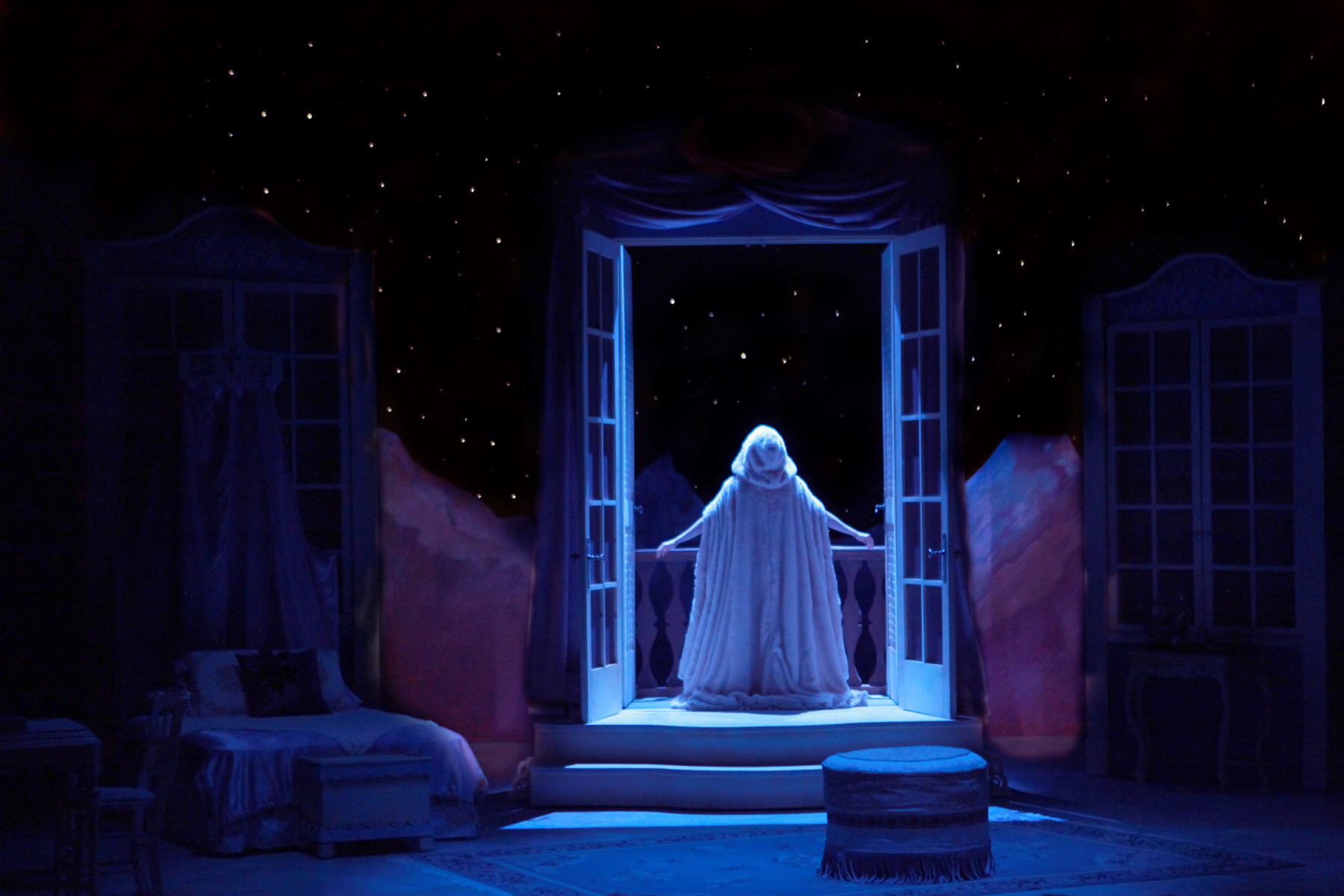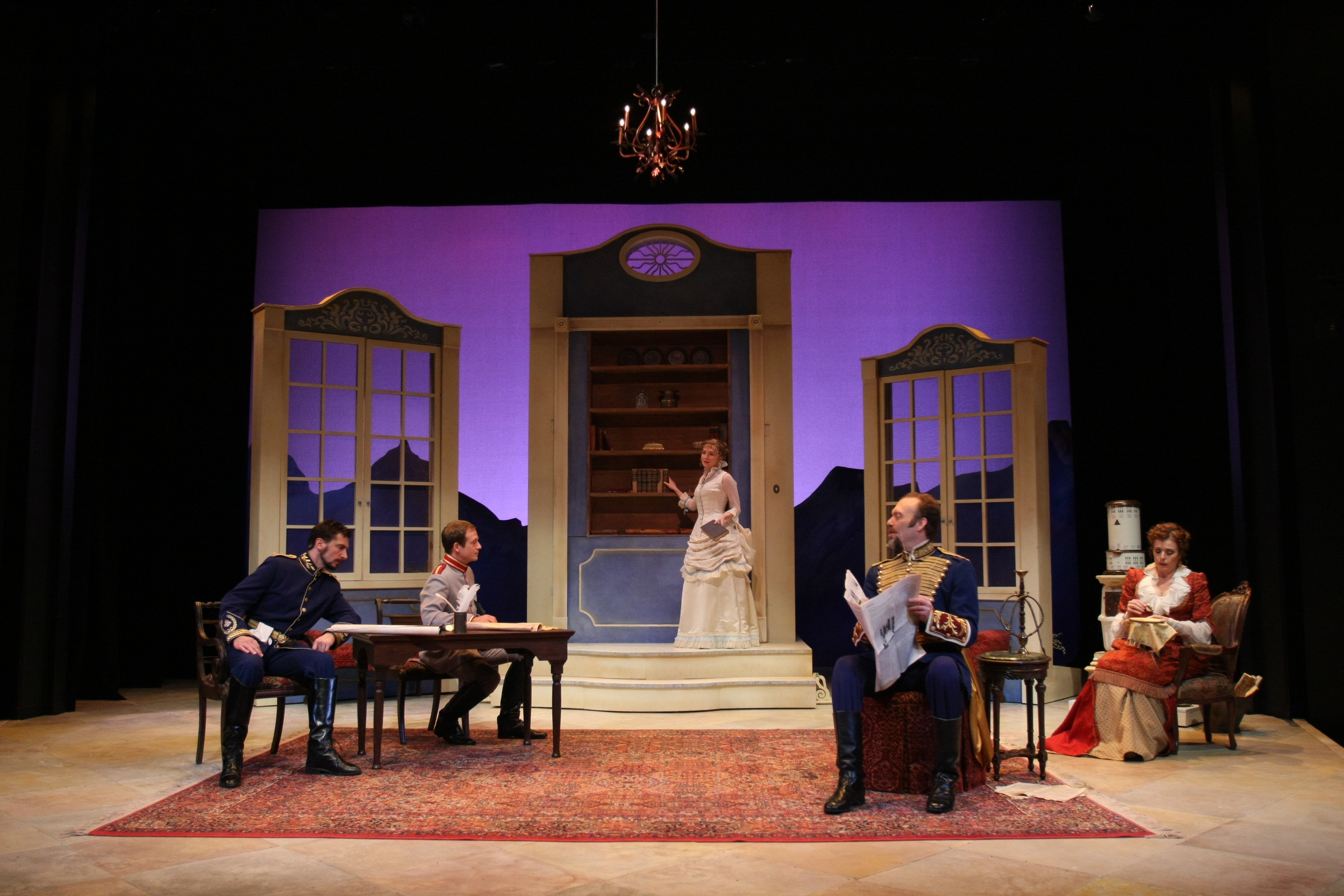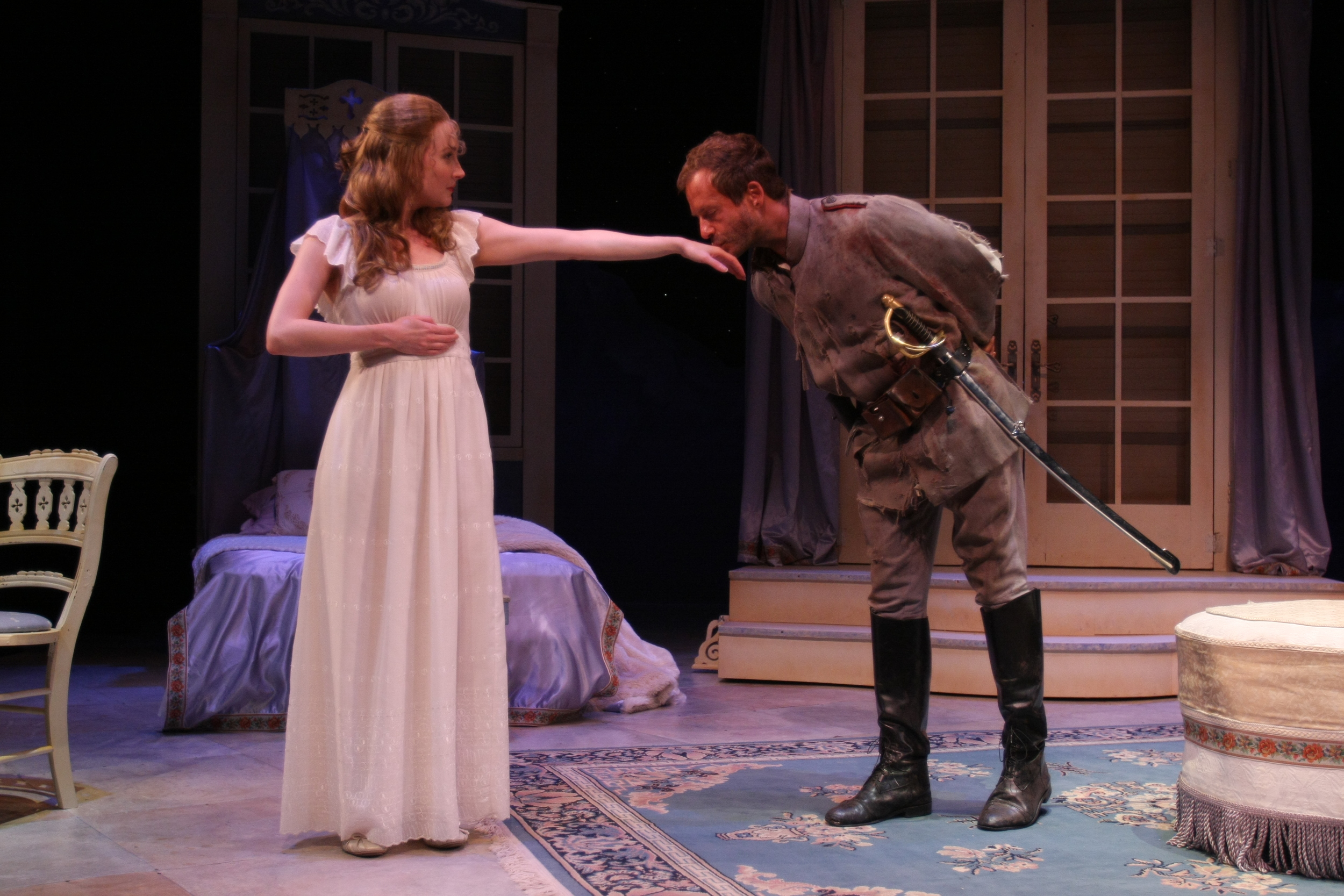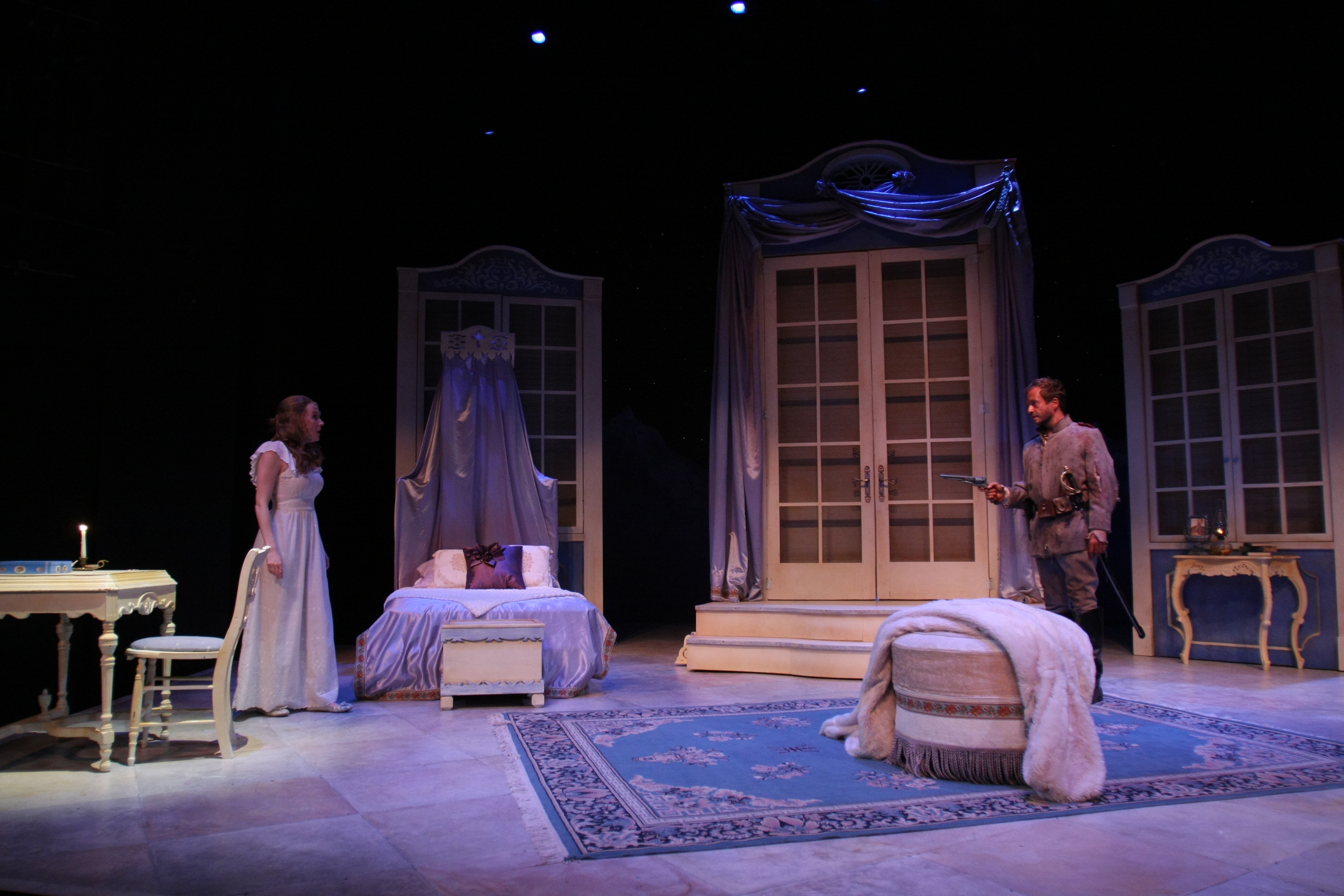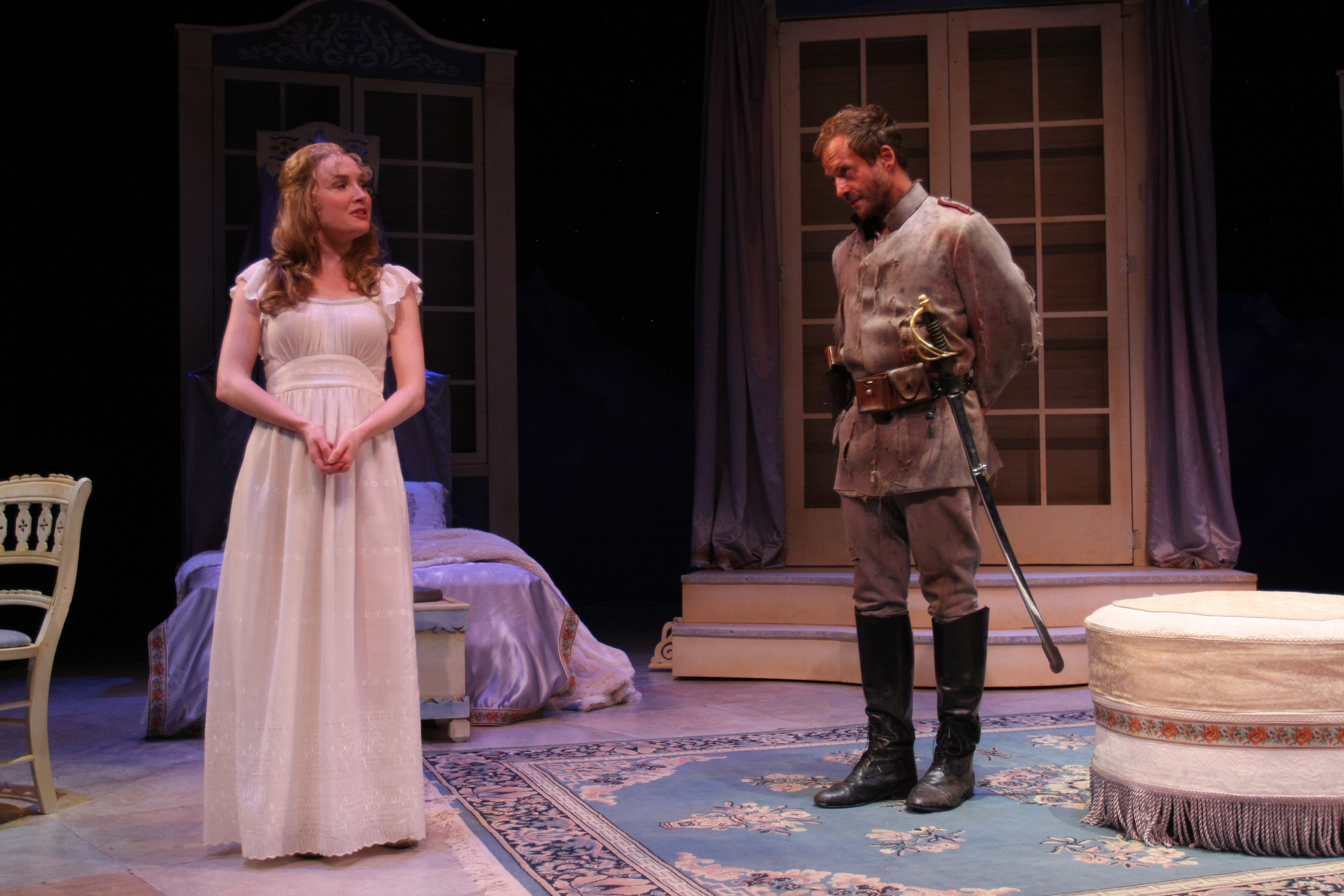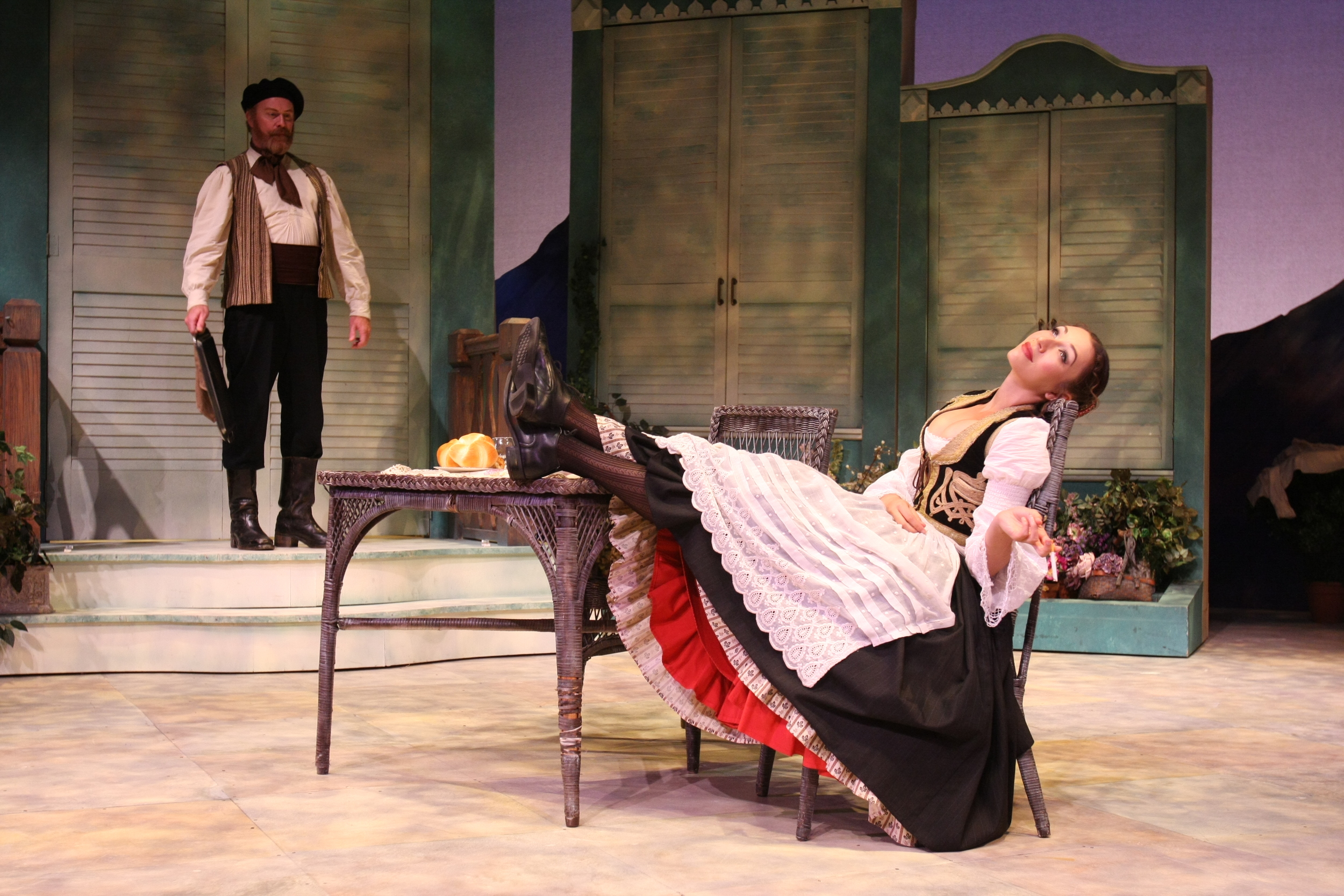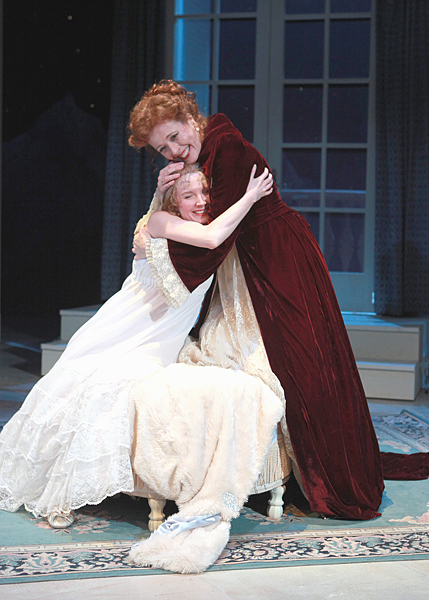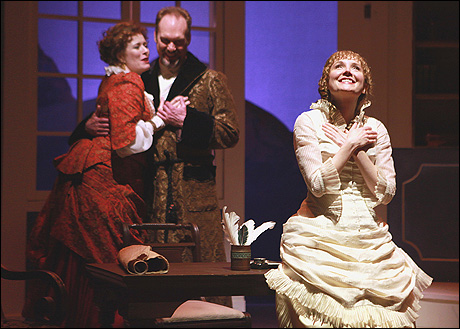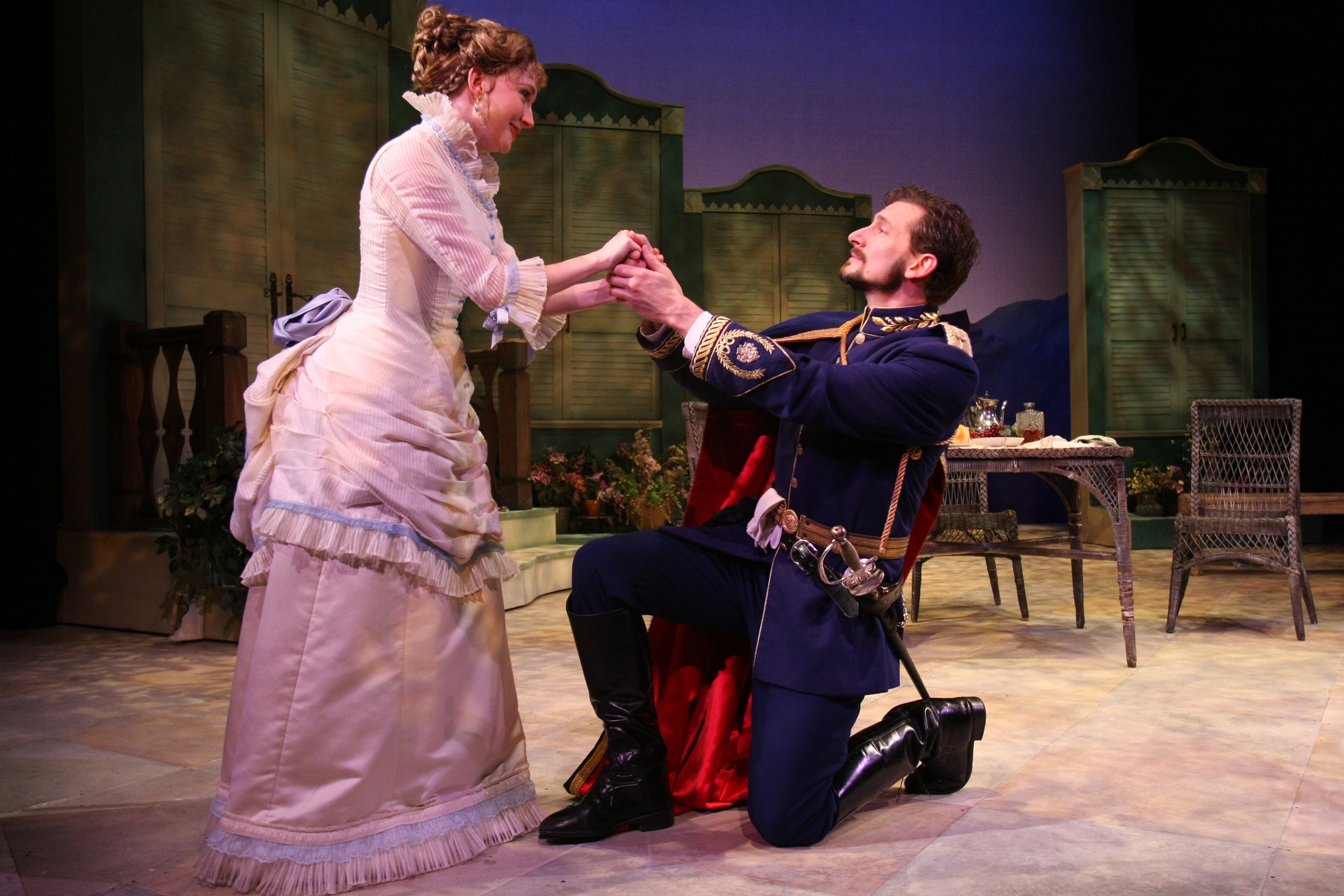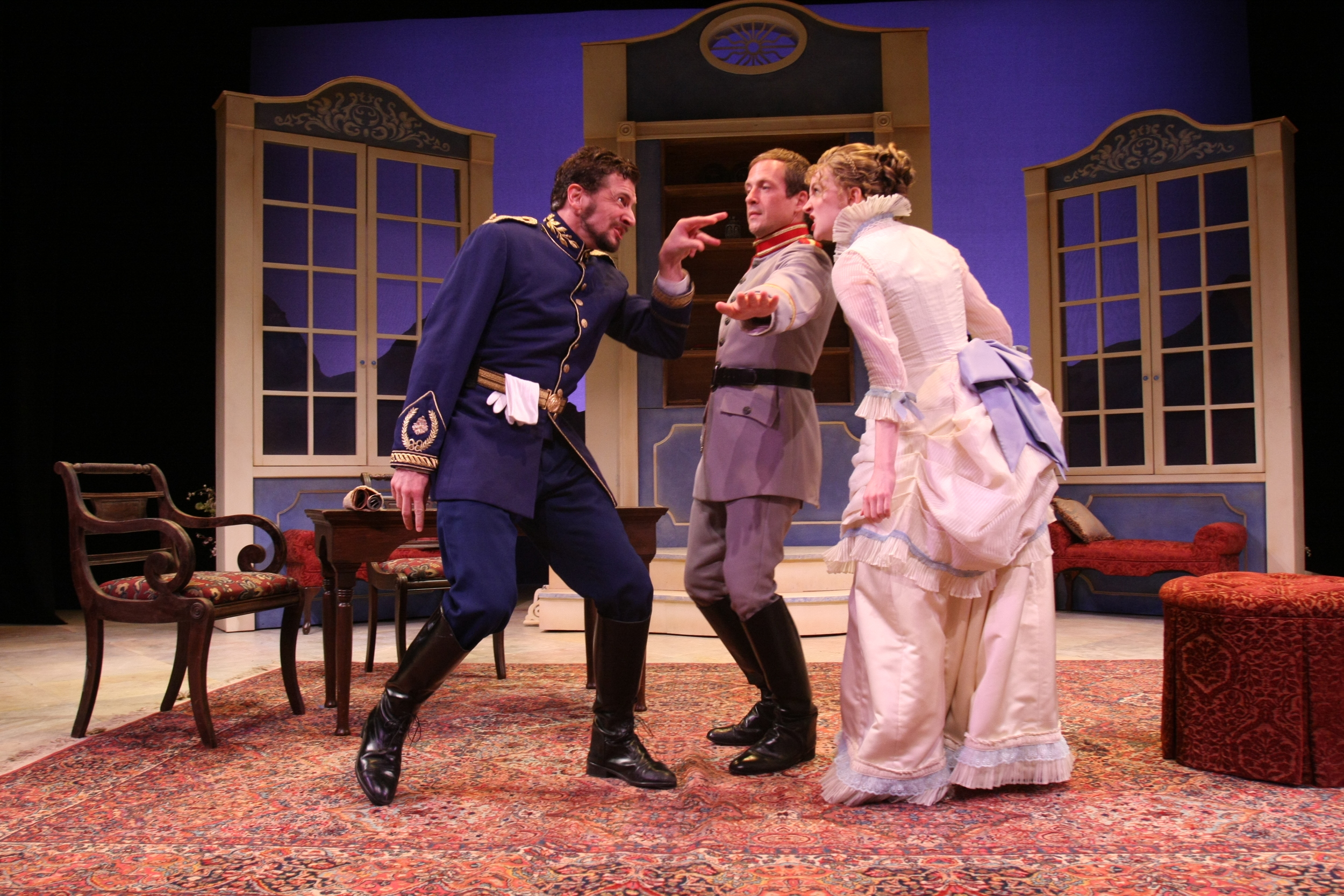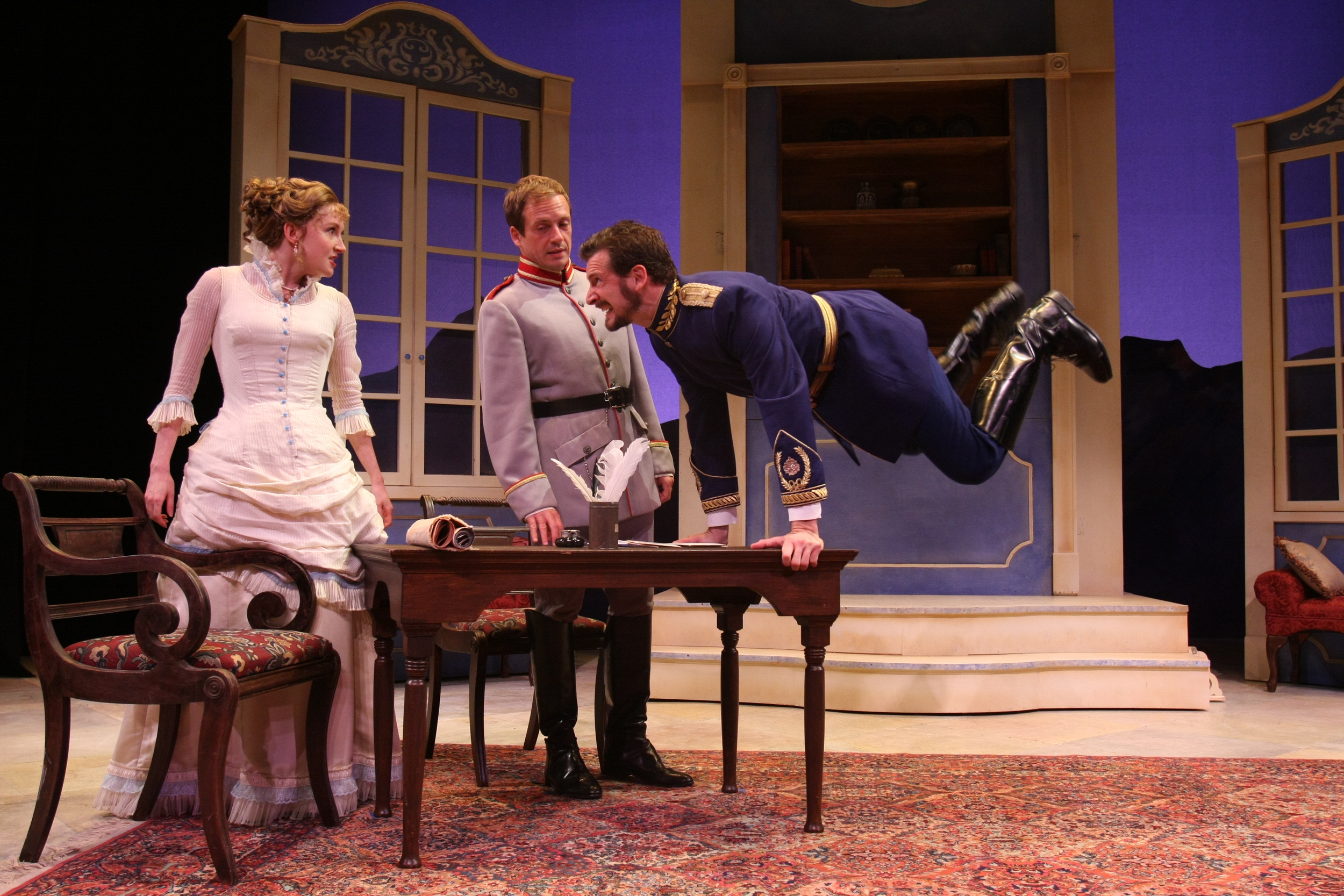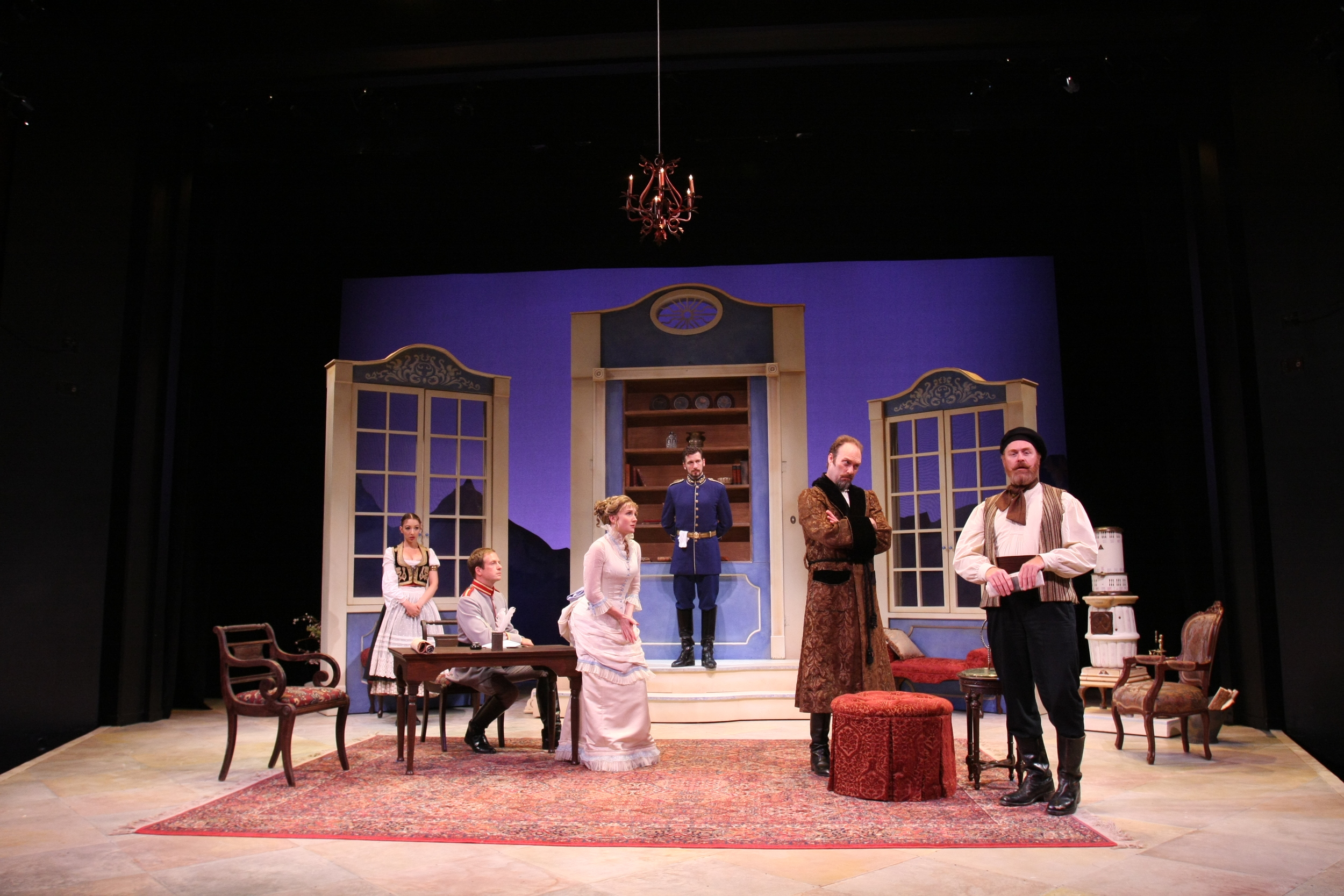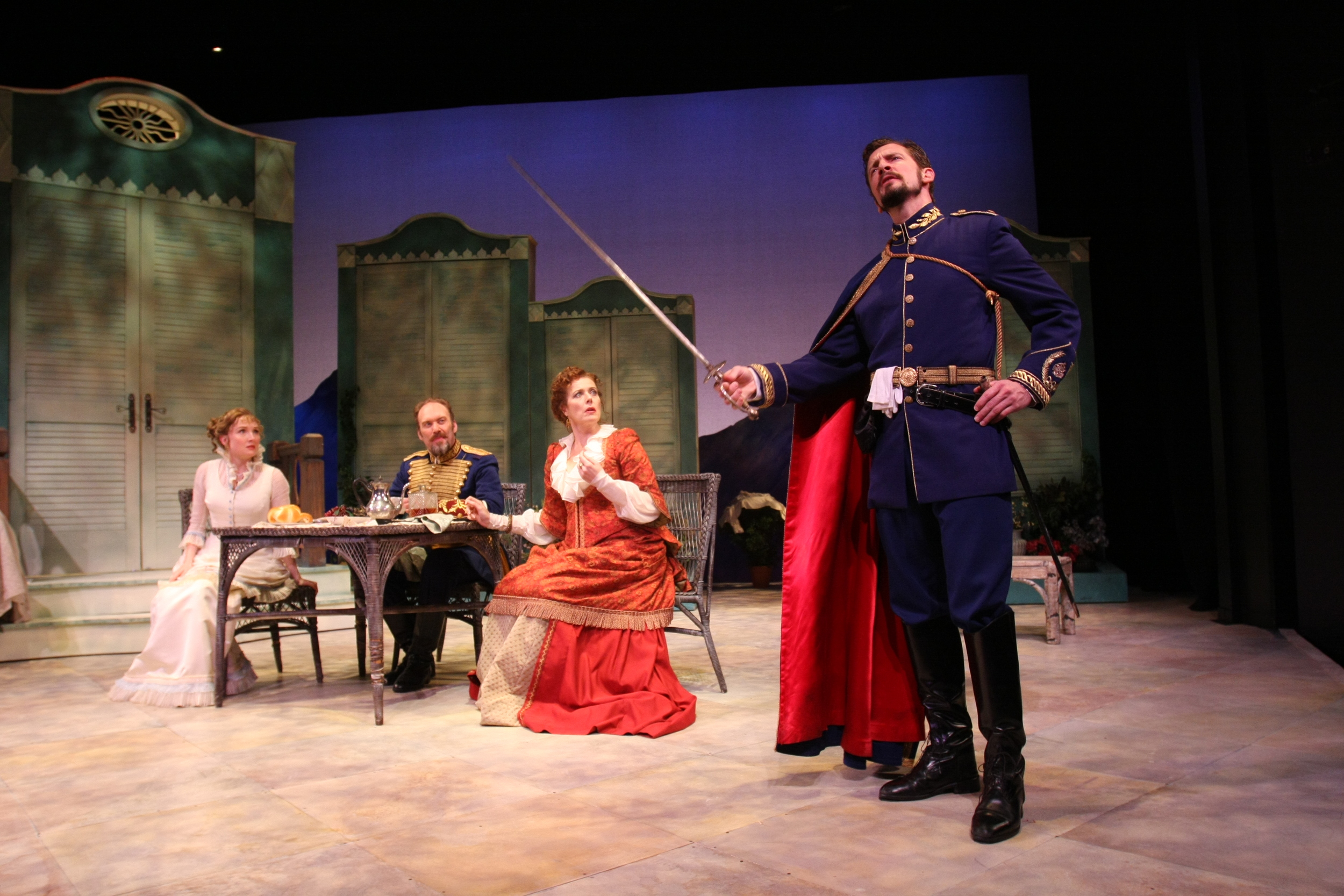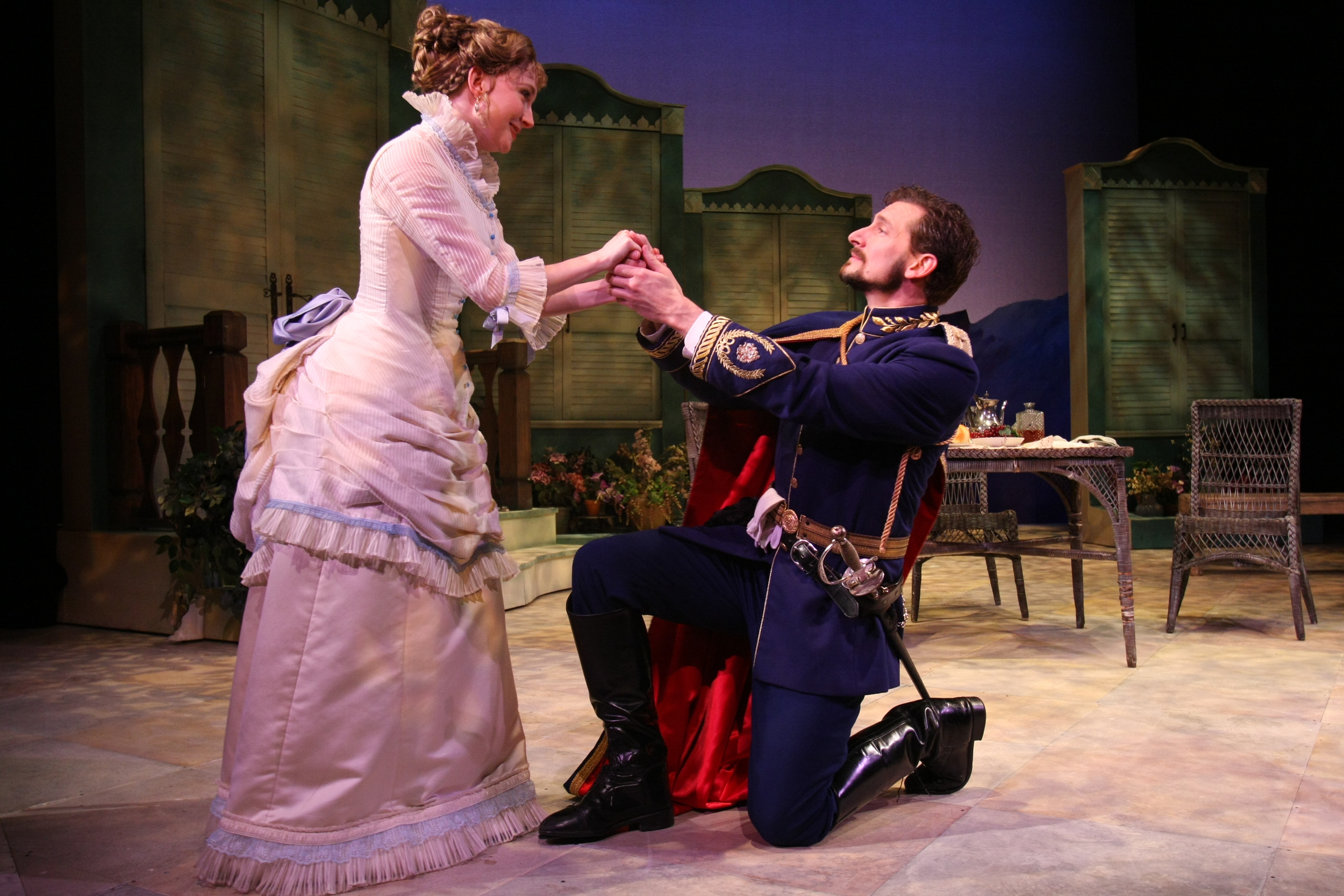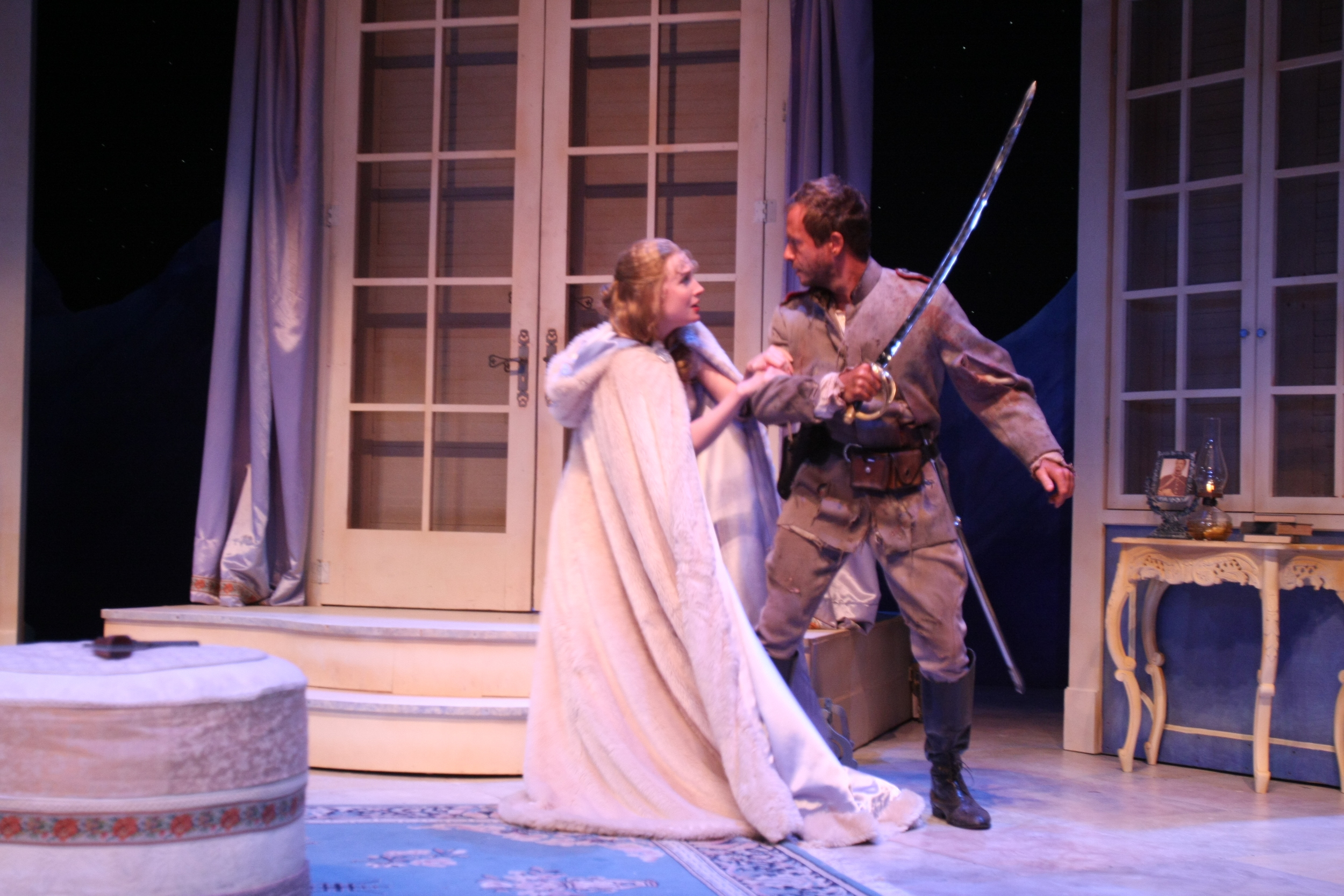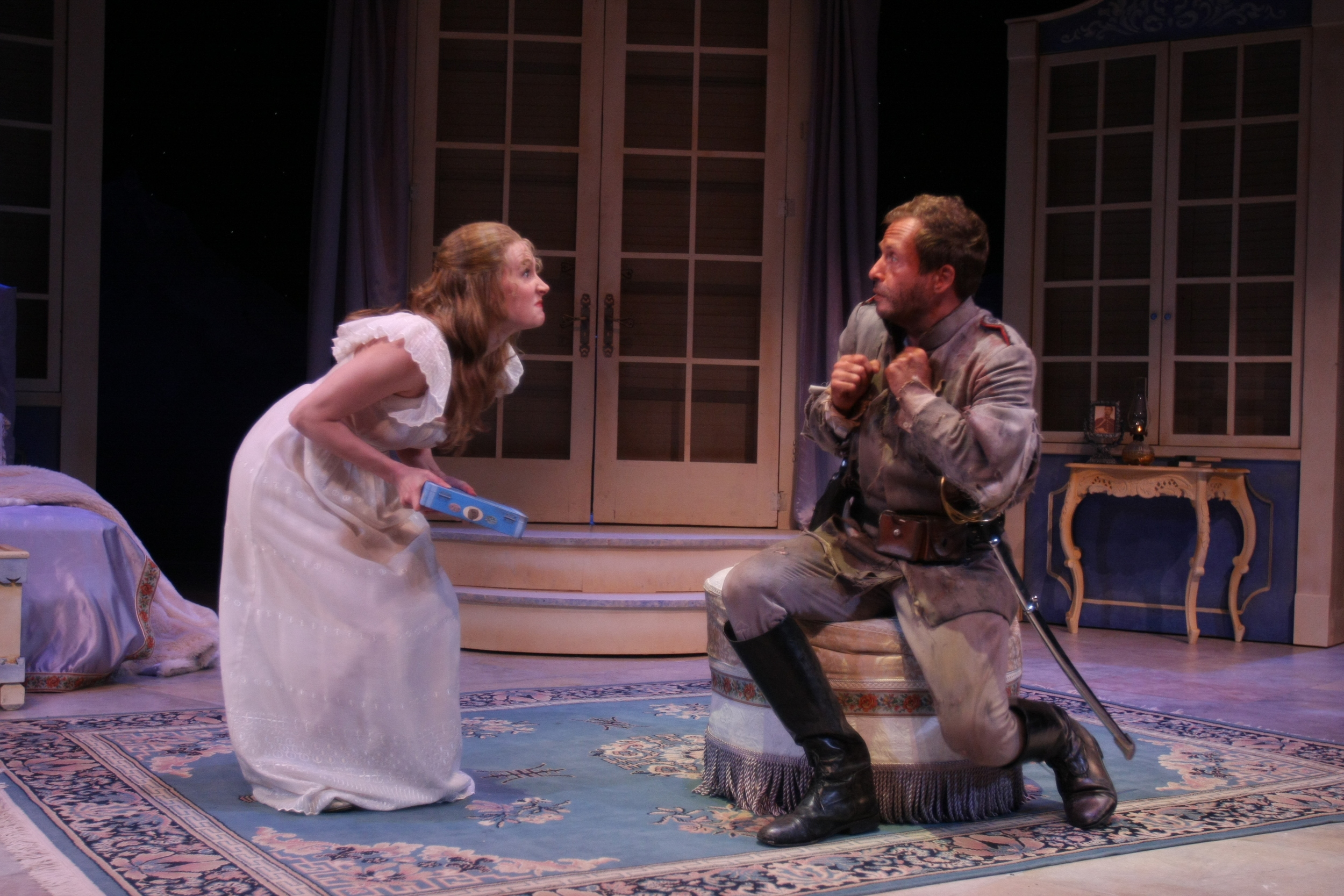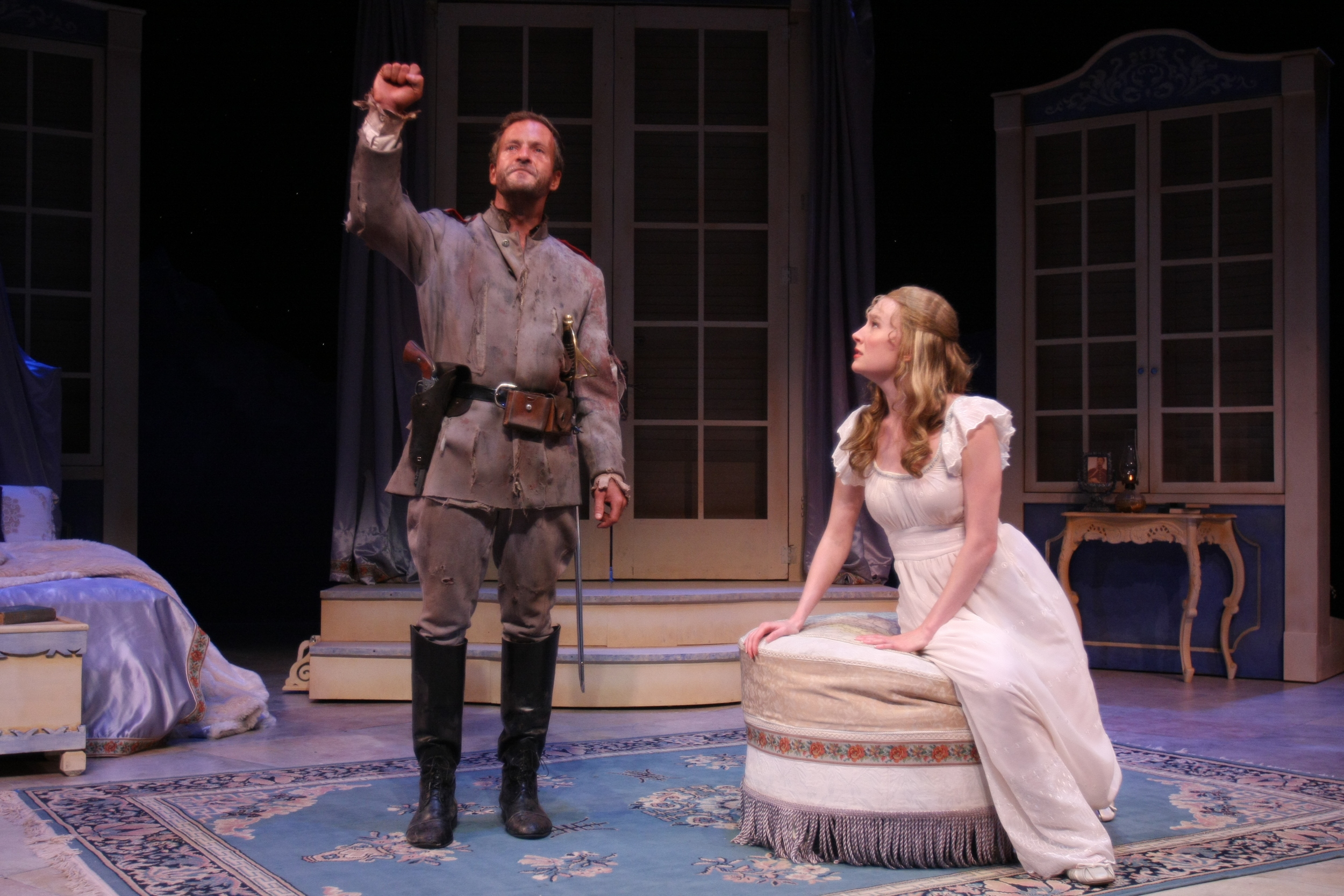“Mr. Discher has the farce running smoothly and surely.”
“It takes expert direction such as we get with Discher, especially in the first half of the Act I, not to allow the cast to overstate the comical business...”
“…director Joe Discher’s on-the-money production...”
By George Bernard Shaw
Directed by Joseph Discher
Scenic Design by Charles Calvert
Lighting Design by Matthew Adelson
Costume Design by Emily Pepper
Sound Design by Joseph Discher
Production Stage Manager - Christine Whalen*
THE CAST
Ames Adamson* | Nicola
Jason Edward Bobb | Russian Officer
Bill Christ* | Paul Petkoff
Anne-Marie Cusson* | Catherine Petkoff
Helen Farmer* | Louka
Sean Mahan* | Bluntschli
Anthony Marble* | Sergius
Nisi Sturgis* | Raina Petkoff
*member Actor's Equity
The Serbo-Bulgarian War of 1885
George Bernard Shaw
Arma virumque cano
The title of Arms and The Man is derived from this Latin phrase from the opening words of Virgil's Aeneid, an epic poem glorifying war. Translated in English it reads: Of arms and the man I sing.
The first production of Arms and the Man opened on April 21st, 1894 at the Avenue Theatre in London. One of Shaws earliest plays, it was also his first commercial success. It was published in 1898 as part of his Plays: Pleasant and Unpleasant. These early works were plays of ideas in which Shaw challenged the current trend of artificial plots and conventional characters. He called his first three plays unpleasant, stating that their dramatic power is used to force the spectator to face unpleasant facts. These unpleasant plays were also unsuccessful, and Shaw turned to humor both in an effort to find producers and audiences, and as a vehicle to get his message across. The first of the pleasant plays was Arms and the Man.
Despite its popularity, Shaw felt that audiences completely misunderstood it, expecting something more in the vein of the well-made plays of the Victorian era. Audiences who saw Arms and the Man laughed at Bluntschli, the chocolate cream soldier as if he were intended to be merely farcical rather than instructive in revealing the folly of romantic ideals concerning war. Critic Charles A. Berst asserted, The tightly knit humor of incident and character in Arms and the Man has tended to obscure the more inclusive range of Shaws artistic achievement in the play. Indeed, there was uproarious laughter at the first performance, and the play was a triumph in the eyes of the public. Afterward though, in a letter, Shaw remarked I had the curious experience of witnessing and apparently insane success, with the actors and actresses almost losing their heads with the intoxication of laugh after laugh, and of going before the curtain to tremendous applause, the only person in the theatre who knew the whole affair was a ghastly failure. One audience member that night was in agreement with Shaw, and when he appeared at the end of the performance, there was a solitary boo from the gallery. With his unflagging wit, Shaw responded: My friend, I quite agree with youbut what are we two against so many?
In another letter, Shaw called Arms and the Man, a serious farce. And a serious farce it is. In the guise of this very pleasant and entertaining play, Shaw brings important themes to light, tackles societal issues and illuminates our humanity; from challenging class discrimination, to exploding romanticized ideas about war, to examining the true nature of love, which can be found through self-examination, and by balancing romanticism with a realistic assessment of ourselves and the world in which we live. It would be easy to view Shaws delightful comedy as a mere piece of fluff, but it is in fact a gourmet dessert, with rich layer-cake of themes and characters with whom we can identify; whether it is Sergius as he struggles to find out who he is; Louka as she strives to win her love and a better life; Raina as she faces the dismantling of her romantic ideals and grows from a woman of style to a woman of substance; or Bluntschliwho can inspire us with both his ability to deal directly pragmatically with any challenge, and his balancing act between the romantic and the prosaic.
The Serbo-Bulgarian War of 1885 took place over the course of two weeks, from November 14-28. Seven years earlier, the Treaty of Berlin had divided the lands previously considered Bulgaria into three new countries: the Principality of Bulgaria, Eastern Rumelia, and Macedonia. On September 6, 1885, Bulgarians in Plovdiv (Philippopolis), the capital of Eastern Rumelia, declared unification with Bulgaria. This decision angered not only the powers that had engineered the Treaty of Berlin, but also the newly-independent Serbia, whose leaders felt threatened and insisted on a balance of power in the Balkans. In the war that followed, Serbia was backed by the Austro-Hungarian Empire, and Bulgaria was backed by Russia. Shortly after Serbia declared war in November 1885 and invaded, Russia called back her officers and left Bulgaria to fend for herself. In spite of this setback, the Bulgarians were victorious in the Battle of Slivnitza. It was nicknamed The Battle of the Captains vs. the Generals, because the withdrawal of the Russian army left the Bulgarians with very few high-ranking officers. The battle took place over three days, from November 17-19, and was the turning point in the Serbo-Bulgarian War. After this defensive victory, the Bulgarian army invaded Serbia and took the city of Pirot. The Austro-Hungarian Empire demanded the end of the war before Bulgaria could take any more ground, but the unification of Bulgaria was recognized as legitimate.
George Bernard Shaw (1856-1950) Irish dramatist, literary critic, and a leading figure in the 20th century theater. Shaw was a freethinker, a vegetarian, a supporter of women's rights and an advocate of equality of income. Born in Dublin, he grew up in relative poverty. When his mother left his father in 1876, Shaw moved to London and resolved to become a writer. He spent many years as a failed novelist, depending upon his mother for financial support. He began to make his mark when he was recruited as a theatre critic for the Saturday Review, and used his considerable wit to displace the artificialities of the Victorian stage with a theatre of vital ideas. Shaw was a leading member of the Fabian Society, a middle-class Socialist group with the goal of transforming English society not through revolution, but permeation of the countrys intellectual and political life. He was most angered by the exploitation of the working class, and wrote many brochures and speeches on the subject. His first play, Widowers' Houses (1892), emphasized social and economic issues instead of romance, adopting the ironic comedic tone that would characterize all his work. Among his popular works: Mrs. Warren's Profession (1893), banned until 1902; Arms and the Man (1894); Candida (1895); Caesar and Cleopatra (1899); Man and Superman (1905); Major Barbara (1905); The Doctor's Dilemma (1911); Pygmalion (1913);Androcles and the Lion (1912), Heartbreak House (1919), and Saint Joan (1923). In 1925, Shaw was awarded the Nobel Prize for Literature. He accepted the honor but refused the money. He died at the age of 94, falling off a ladder while trimming a tree on his property in Hertfordshire.
